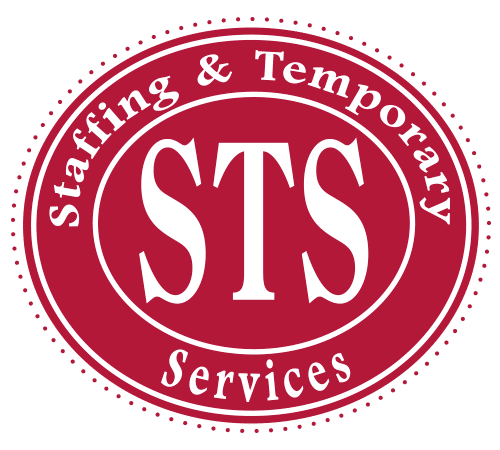Finding the right talent can often feel like searching for a needle in a haystack. While traditional hiring methods have their place, employee referrals can be a game-changer in building a strong and reliable workforce. Referrals leverage the networks of your current employees, bringing in candidates who are not only skilled but also culturally aligned with your organization. This approach can significantly reduce the time and resources spent on recruitment, yielding high-quality hires who are more likely to stay long-term.
Additionally, employees who refer candidates often feel more engaged and valued, knowing they play a crucial role in shaping the team. Whether you’re a small business or a larger enterprise, tapping into the potential of employee referrals can create a positive ripple effect throughout your company, fostering an inclusive and supportive work environment. From boosting morale to improving retention rates, the benefits of employee referrals extend far beyond the initial hire, making them an invaluable asset in your recruitment strategy. Let’s explore how to effectively harness this powerful tool and ensure that both your business and your employees thrive.
The Power of Networking: Tapping Into Hidden Talent Pools
When it comes to locating top-tier talent, networking through employee referrals is a highly effective approach. Your current employees boast vast connections, spanning former classmates, previous colleagues, and other professional acquaintances. Encouraging them to utilize these connections can uncover candidates who may not be actively job hunting but could be enticed by the right offer. By leveraging these hidden talent pools, you can access a broader range of skilled professionals who might have otherwise remained off your radar.
Consider implementing a structured referral program where employees are rewarded for successful hires. This incentivizes participation and ensures that your team is actively engaged in the recruitment process. A real-world example of this strategy in action is seen at companies like Google, which offers substantial bonuses for successful referrals, resulting in a significant portion of their workforce being hired through employee networks.
Cultural Fit: Ensuring Long-Term Success
One of the distinct advantages of employee referrals is the likelihood of candidates being a good cultural fit. Your employees understand the company culture, values, and expectations and are unlikely to refer someone who wouldn’t thrive in that environment. This alignment not only enhances job satisfaction but also reduces turnover rates, as employees are more likely to stay in a place where they feel connected and valued.
This can be particularly beneficial for small businesses. Unlike larger corporations with expansive HR departments, smaller companies often rely on a close-knit team where cultural harmony is crucial. By ensuring that new hires are well-matched to the company’s ethos from the get-go, businesses can foster a more cohesive and productive work environment.
Streamlining the Recruitment Process: Saving Time and Resources
Traditional recruitment methods can be time-consuming and costly. From drafting job descriptions, posting on job boards, and reviewing countless resumes to conducting multiple rounds of interviews, the process is labor-intensive. Employee referrals can drastically cut down on this recruitment burden. Referred candidates are often pre-vetted by the referring employee, reducing the time spent on initial screenings.
Implementing a streamlined referral system can further optimize this process. Use technology to your advantage by creating an easy-to-use online platform where employees can submit their referrals, track the status of their submissions, and receive updates on their incentives. This not only makes the process more efficient but also keeps employees motivated and engaged.
Boosting Employee Morale: Fostering a Sense of Ownership
When employees are encouraged to refer candidates, it instills a sense of ownership and pride in the company’s growth and success. Knowing that they have played a part in shaping the team can significantly boost morale and job satisfaction. It also creates an inclusive environment where everyone feels their contributions are valued beyond their everyday tasks.
Take, for instance, a small manufacturing company that prioritizes employee referrals. By regularly recognizing and rewarding employees for successful hires during team meetings or through company newsletters, the company can foster a sense of community and shared purpose. This not only strengthens the team but also enhances overall workplace productivity.
Challenges and Solutions: Navigating Potential Pitfalls
While employee referrals offer numerous benefits, they are not without challenges. One potential pitfall is the risk of creating a homogenous workforce, as employees might tend to refer candidates similar to themselves. This can inadvertently stifle diversity and innovation within the company.
To counter this, emphasize the importance of diversity in your referral programs. Encourage employees to consider a broad spectrum of candidates from different backgrounds and experiences. Additionally, complement referral efforts with other recruitment strategies to ensure a diverse and well-rounded talent pool.
Small Businesses: Gaining a Competitive Edge
For small businesses, employee referrals can be a game-changer in a highly competitive job market. With limited resources, small companies often struggle to compete with larger firms that offer higher salaries and more extensive benefits. However, by leveraging the power of referrals, small businesses can attract high-quality candidates who are more likely to be loyal and committed to the company’s growth.
Highlighting the unique aspects of your company culture, such as flexible work arrangements, opportunities for career growth, or a supportive team environment, can make your business more appealing to referred candidates. Moreover, showcasing success stories of how employee referrals have positively impacted your company can serve as powerful testimonials to attract even more talent.
Building a Sustainable Referrals Program: Continuous Improvement
Building a sustainable and evolving program is crucial to maximizing the benefits of employee referrals. Regularly solicit feedback from employees about their referral experiences and use this information to make necessary adjustments. Celebrate successes and address any challenges promptly to keep the program effective and engaging.
Consider setting clear, achievable goals for your referral program and tracking its performance over time. This can help you identify trends, understand what works best, and make data-driven decisions to enhance your recruitment strategy.
Embracing the Power of Employee Referrals
As your current employees become brand ambassadors, they bring forward candidates who resonate with your company’s values and mission. This not only enhances team cohesion but also ensures a quicker adaptation to your workplace environment, reducing the learning curve and driving productivity from the outset. Integrating these referral strategies into your broader recruitment processes yields a multifaceted approach to talent acquisition.
Ultimately, harnessing the power of employee referrals aligns perfectly with our mission at STS Staffing: to match talent with opportunities seamlessly. By creating a workplace where every team member has a voice in the company’s growth, you cultivate an environment ripe for innovation, loyalty, and sustained success. Whether you’re navigating the peaks of retail rushes or the steady flow of manufacturing demands, a strong referral program can be your anchor, ensuring you always have the right talent at the right time. Need help finding top talent? Let us refer one of our qualified candidates to get you started. Request an employee today!

